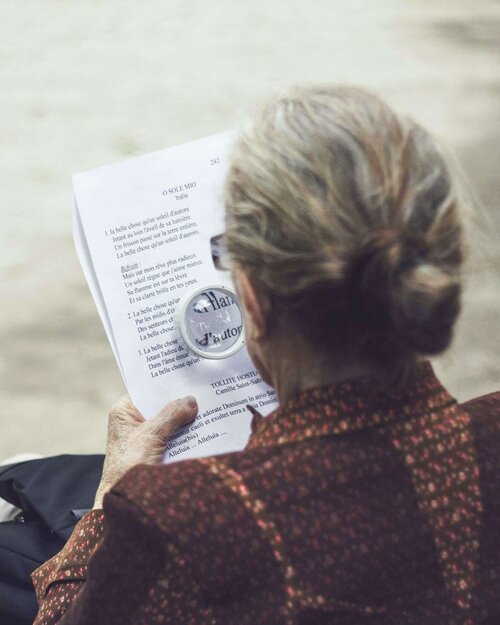Have you been plugging away at your family history and feel like you are getting stuck? Don’t worry, it can and does happen to all of us. Sometimes it feels like those ‘brick walls’ just won’t budge an inch.
With so many records at our fingertips now it can be exciting (and overwhelming) being able to search so much and with such ease. However, because more records are available it doesn’t mean they are ALL available, or that they may be easily accessible. Here are three reasons why you are getting nowhere with your family history research and how to fix them and move forward on your research journey.
YOUR SEARCH IS TOO NARROW
Quite often you have been given a piece of information or you have found a little snippet of evidence that you latch onto when researching your ancestors. Great! It’s fantastic that you have solved part of your mystery that could then open up other doors to information and stories. But that’s it, now you can’t move past that point in your research; you have all of the names and dates and places your ancestor may have lived and loved and you are entering that into your search engine and NOTHING. Zip. Zilch. Nada.
Our tip – “less is more”. That’s right, the less information you put into those search engines the broader the range of possibilities will be. Spelling can change over time, dates can be different or incorrect and a place name might have changed from what we know it as today. It wasn’t uncommon for people to be illiterate and not know how to write, spell or read their names. Therefore, if their information has been taken down phonetically it could be spelt a number of ways over time, letters and/or apostrophes dropped or added, and you might not find them.
The same goes for significant dates (births/baptisms, deaths, marriages). Was the event registered at a much later date compared to when it took place? Has the date been changed for some reason? (This is quite often found when men were trying to enlist for war – a little too young = add a few years; a little too old = take off a few).
For a great period of time there was no need or no way to prove your identity and it was much easier to “fudge the numbers”. So your ancestor could have become anyone they wanted to without having to prove a thing.
Many databases and search engines have been created for searchers to undertake wildcard (*) searches. These may differ from one to the other, but often you will be able to use a wildcard (*) in place of parts of a name you may not be certain about. For example, you may know your ancestor as Jane Brown and you are not having any luck finding her. But, what if somewhere down the track she was actually known as Jane BrownE? Replacing that variable with a wildcard (*) could bring up a whole heap more options, and you just might find what you’ve been looking for.
So, allow for fluidity when researching. Don’t get too caught up in the specific details, broaden your horizons and search criteria.
The same goes for significant dates (births/baptisms, deaths, marriages). Was the event registered at a much later date compared to when it took place? Has the date been changed for some reason? (This is quite often found when men were trying to enlist for war – a little too young = add a few years; a little too old = take off a few).
For a great period of time there was no need or no way to prove your identity and it was much easier to “fudge the numbers”. So your ancestor could have become anyone they wanted to without having to prove a thing.
Many databases and search engines have been created for searchers to undertake wildcard (*) searches. These may differ from one to the other, but often you will be able to use a wildcard (*) in place of parts of a name you may not be certain about. For example, you may know your ancestor as Jane Brown and you are not having any luck finding her. But, what if somewhere down the track she was actually known as Jane BrownE? Replacing that variable with a wildcard (*) could bring up a whole heap more options, and you just might find what you’ve been looking for.
So, allow for fluidity when researching. Don’t get too caught up in the specific details, broaden your horizons and search criteria.
YOU ARE THINKING TOO LITERALLY
Much like narrowing your search too much, thinking literally when researching can see you on a fast train to nowhere when you are doing your family history. You may know what your ancestors did for a living, or that they were a part of the local church, club or council, but you just can’t find anything at all about them.
Thinking and researching literally can narrow your possible matches. So we suggest that you think laterally. Go sideways instead of up and down, you might need to go backwards before being able to go forwards. Think outside the box.
Something that might not make much sense or be very logical in today’s terms, might have been perfectly acceptable 100 years ago, or vice versa. Like broadening your search terms, broaden your thinking too.
You ancestor might have worked on the railway in a small country town, but were they a driver or did they work in a different department? Were the railways at that time governed by someone else and could the records be named something different, something broader?
Maybe your ancestor had purchased land from the Crown and had problems with keeping vermin out of their paddocks. Did they write letters to someone about their problems and the distress that this may have caused? You might need to think about where someone might send such a letter. Who could have been in charge of dealing with something like that and did they keep correspondence?
Perhaps your ancestor had gone into partnership with a sibling, cousin or friend. If your searches for your direct ancestor are bringing up nothing, it could be time to go down a different research path. In this instance you may have more luck with researching the other party/parties.
YOU BELIEVE EVERYTHING YOU READ
There are some pitfalls with big search programs like Ancestry.com and Find My Past (shock horror!) when researching your family history. Don’t get us wrong, we use these platforms all the time and they are a wonderful and readily accessible tool. When once upon a time the only way to access records was to physically see them, which may have required a trip to the other side of the world, some of them are now available at your fingertips.
Imagine this: you begin your research and quickly you find a large family tree that has your ancestors on it and that someone has kindly allowed to be ‘public’ on Ancestry. It’s got some names of people you know and a whole lot more you don’t, it looks like your family so you add it to your own tree.

Don’t believe everything you read. Check! Check! Check!
Wow! How fab, a family tree done in the blink of an eye. What you may not have noticed is that person had also shared it from someone else, who had subsequently taken it from another person. But, that first person who has created the family tree has not done thorough research, they have seen some records that look ‘good enough’ and added them to their tree. Lots of the information doesn’t make sense; dates don’t add up, timelines are skewed and relationships don’t make any sense.
This first person has got it completely wrong, and in allowing others to share their trees has perpetuated falsehoods, myths and misinformed family trees to a bunch of people on the internet. Copying and pasting can get you in trouble. And really, it is way more fun making the discoveries yourself rather than copying them.
Not so long ago I found a family tree on Ancestry that had a family moving half-way across the world, not once, but three times, children being born in three different countries and a husband that died twice. Twice! Twenty-five years apart. I don’t know about you, but I am fairly certain that unless they had some fancy Harry Potter magic, then that is impossible.
So, don’t believe everything you read on Ancestry. Do your own research. By all means check out others’ trees, they may be a great starting point for your own, or they could be a great place to debunk a myth.
Remember, that not everything has been recorded. Something that we are really interested in, or thought would absolutely, most definitely, without a doubt HAD to be recorded may not have been. They may not have felt it was important at the time to keep it for the future. Or, the record may have been destroyed due to environmental factors (flood, fire, mould, etc.) or record retention practices. Or maybe they never existed in the first place.
AND ANOTHER THING…

Google can be your friend. Why not plug it into the search engine and see if anything comes up.
Google can be your friend and there’s no harm plugging in some of the details you are trying to find. But, Google doesn’t hold ALL of the information, nor do search engines such as Ancestry, Find My Past or Family Search. Sometimes you need to get down and dirty, searching through those original, physical records held in the archives and the local historical societies.
So when you are researching keep in mind variability and fluidity around your search, lateral thinking and keeping an open mind. Research takes patience and persistence, but it is totally worth it in the end. And, even if you don’t find what you are looking for, then at least you have tried and you can tick that avenue off your checklist.
And, if you’re unsure how or that brick wall is being really stubborn then this is where we can help you. We’re your resident history detectives and carry out end-to-end historical research done for YOU. So, want to know more about breaking down that brick wall? You can get in touch here for an obligation-free quote or request a call back from us to chat more.
But, above all else, remember that your family history research is supposed to be fun!

